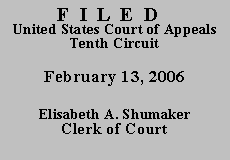

| UNITED STATES OF AMERICA,
Plaintiff-Appellee, |
|
| v. | |
| LEON FERNANDO MARTINEZ-GARCIA,
Defendant-Appellant. |
|
Counsel for Martinez-Garcia has filed a brief pursuant to Anders v. California,
386 U.S. 738 (1967), and has moved to withdraw. In response, Martinez-Garcia has
filed a pro se brief identifying additional issues for appeal. Anders holds that "if
counsel finds his case to be wholly frivolous, after a conscientious examination of
it, he should so advise the court and request permission to withdraw." Id. at 744.
Upon receiving an Anders brief and the defendant's response thereto, we are required
to conduct "a full examination of all the proceedings" in order "to decide whether the
case is wholly frivolous." Id.
The Anders brief filed by Martinez-Garcia's counsel identifies one potential
appellate issue: whether Martinez-Garcia's sentence violates the Eighth
Amendment. After conducting an independent review of the record, we agree that
this issue is without merit.
We review de novo Eighth Amendment challenges to a criminal sentence. United States v. Delacruz-Soto, 414 F.3d 1158, 1168 (10th Cir. 2005) (citation omitted). "'The Eighth Amendment . . . contains a 'narrow proportionality principle' that 'applies to noncapital sentences.'" Ewing v. California, 538 U.S. 11, 20 (2003) (quoting Harmelin v. Michigan, 501 U.S. 957, 996-97 (1991)). Under this narrow proportionality principle, the Eighth Amendment "does not require strict proportionality between crime and sentence." Id. at 23. "Rather, it forbids only extreme sentences that are 'grossly disproportionate' to the crime." Id. (quoting Harmelin, 501 U.S. at 1001 (Kennedy, J., concurring in part and concurring in the judgment)). Generally, "a sentence within the limits imposed by statute is neither excessive nor cruel and unusual under the Eighth Amendment." Delacruz-Soto, 414 F.3d at 1168 (citing United States v. Hughes, 901 F.2d 830, 832 (10th Cir. 1990)). We easily conclude that Martinez-Garcia's sentence does not violate the Eighth Amendment because his sentence is required by statute and is not grossly disproportionate to his crimes. See e.g., United States v. Angelos, 433 F.3d 738, 749-53 (10th Cir. 2006) (rejecting defendant's argument that his fifty-five year sentence, mandated under 18 U.S.C. § 924(c), violated the Eighth Amendment).
Martinez-Garcia identifies two additional issues: the district court applied the Sentencing Guidelines in a mandatory fashion, in violation of United States v. Booker, 125 S.Ct. 738 (2005); and his plea was not voluntary because his counsel failed to translate or otherwise explain his plea agreement. We also conclude that these issues are without merit. First, the district court did not sentence Martinez-Garcia under a guideline range; rather, the district court sentenced him under the statutory mandatory minimum.(1) Booker has no applicability when a defendant receives a mandatory minimum sentence. United States v. Payton, 405 F.3d 1168, 1173 (10th Cir. 2005). Second, at the plea hearing, the district court found that Martinez-Garcia's pleas were knowingly and voluntarily entered. The district court asked whether the plea agreement was read to Martinez-Garcia, and Martinez-Garcia's attorney informed the court that the entire document was read to Martinez-Garcia in Spanish. Further, the plea agreement, signed by Martinez-Garcia on the date of the plea hearing, acknowledges that Martinez-Garcia had the assistance of counsel in reviewing and explaining the document.
AFFIRMED. Counsel's motion to withdraw is GRANTED.
Entered for the Court
Mary Beck Briscoe
Circuit Judge
*. This order and judgment is not binding precedent, except under the doctrines of law of the case, res judicata, and collateral estoppel. The court generally disfavors the citation of orders and judgments; nevertheless, an order and judgment may be cited under the terms and conditions of 10th Cir. R. 36.3.
1. We note that Martinez-Garcia was sentenced on June 6, 2005, i.e., post-Booker.